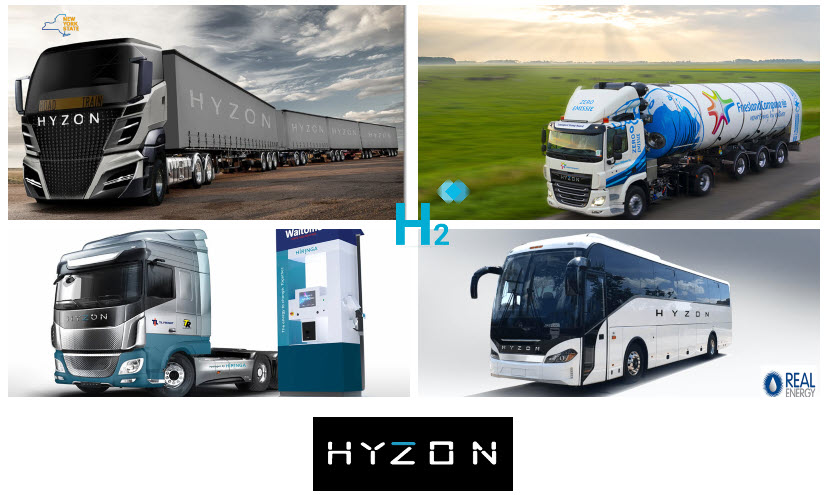
- Hyzon expects to meet 2021 sales guidance provided in February 2021, on-track to meet 2022 outlook with orders, non-binding commitments from global customer base
- Continued technological innovations, commercial partnership developments support growing customer pipeline
ROCHESTER, N.Y — Hyzon Motors Inc., a leading global supplier of zero-emission hydrogen fuel cell-powered commercial vehicles, announced today updates to orders and non-binding memoranda of understanding (MoUs) and technological developments, ahead of the proposed business combination with Decarbonization Plus Acquisition Corporation (NASDAQ: DCRB). The consummation of the proposed business combination is subject to satisfaction or waiver of customary closing conditions.
Orders and non-binding MoUs have increased to represent up to $83M1, up more than 50% from $55M as of April 29, 2021, and over 100% from February 12, 2021. Expected 2022 deliveries include up to 70 trucks from Austrian grocery retailer MPREIS currently under an MoU.
The growing list of orders and non-binding MoUs comes from the rapidly developing European market as well as Australia, thanks to the company’s international footprint. To meet the growing demand for fuel cell electric commercial vehicles, Hyzon is on track with the buildout of its local vehicle assembly capabilities in Europe and the U.S., along with expansion plans in Australia and China.
Hyzon’s fuel cell performance has allowed the company to serve multiple heavy industries, including freight, construction, and mining. Final specifications for an ultra-heavy-duty truck have been confirmed; Ark Energies, a subsidiary of Korea Zinc, is expected to receive the first five units of trucks capable of loading to more than 150 tons in 2022.
In addition to building its pipeline, Hyzon has actively invested in projects to expand its lead in core FCEV technologies. The company’s next-generation fuel cell achieves a power density above 6 kilowatts per liter and has already been ordered by a leader in zero-emissions aerospace. Hyzon has developed proprietary eAxle technology and is focused on improving its battery technology, to boost electrical efficiency of its vehicles’ powertrains.
Hyzon’s innovations extends beyond the fuel cell as the company seeks to ease the transition to hydrogen for fleet operators. Through a recently announced agreement with Chart Industries, the partners expect to develop an ultra-heavy-duty truck with a range of 1,000 miles, powered by liquid hydrogen
Simultaneously, Hyzon has successfully reduced costs in excess of $50,000 per vehicle for manufacturing components and sub-systems, with savings over 80% for certain auxiliary power systems, power distribution unit and on-board chargers and over 40% for battery, eMotor, and inverter components. These savings are expected to grow as operations scale and Hyzon continues to evolve vehicle and component designs.
To address growing hydrogen infrastructure needs, the company is investing in developing the initial hydrogen production and supply hubs as it builds out the previously announced global hydrogen hub network. Through these hubs, fleet operators should be able to access local, scalable hydrogen with projected total cost of ownership to reach parity with diesel vehicles in 12-18 months, without subsidies. The first hub is expected to be built in California with Raven SR, subject to signing a definitive agreement; two more are expected to open in the Netherlands this fall. Additional hubs providing gaseous and liquid hydrogen are being developed with other partners globally.
Supporting the global hydrogen ecosystem, Hyzon launched the Hyzon Zero Carbon Alliance on Earth Day 2021. The alliance, a consortium of companies that operate along all points of the hydrogen value chain, includes founding members such as Bank of America, TotalEnergies, AXA and NEOM. The consortium aims to align organizations that are currently active participants in the hydrogen economy, leveraging their experience and expertise to accelerate the transition to a zero-emissions reality. In an initial expansion, the alliance recently admitted Woodside Energy, Australia’s leading natural gas producer.
Read the most up to date Fuel Cell and Hydrogen Industry news at FuelCellsWorks




